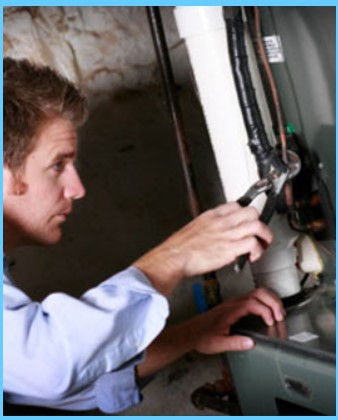Understanding Heating Repairs: Essential Tips and Insights
- William Smith
- Mar 31, 2025
- 4 min read

As winter approaches and temperatures begin to dip, ensuring your heating system is in top condition becomes essential for comfort and safety. While heating systems are generally reliable, like any appliance, they may need occasional repairs. In this article, we'll walk you through the common signs that your heating system needs attention and offer advice on maintaining it to avoid unnecessary breakdowns.
Signs Your Heating System Needs Repair
Strange Noises If you hear banging, clanking, or screeching sounds coming from your heating system, it could indicate issues such as a loose component, a worn-out fan, or debris clogging the system. These noises should not be ignored, as they often point to something more serious that could affect your heating system’s performance.
Inconsistent Heat Is your heater producing uneven warmth throughout your home? Some rooms might be colder than others, or your heating system might not be running as efficiently. This could be a sign of an airflow problem, ductwork issues, or a malfunctioning thermostat.
Foul Odors If you smell burning odors or musty, unpleasant smells coming from your heater, it could be a warning sign of a malfunction. For example, a burning smell may indicate a dust buildup on heating elements, while a musty smell could suggest mold in the ducts or a water leak.
Increased Energy Bills If you notice a sudden increase in your heating costs despite consistent usage, it may be a sign that your system is working harder than it should to maintain a comfortable temperature. This could be due to inefficiency caused by worn-out parts, a dirty filter, or ductwork leaks.
Pilot Light or Flame Issues A pilot light that keeps going out or irregular flame behavior is a clear sign that your gas furnace might need a repair. These issues can pose a safety risk and should be checked by a professional immediately.
Poor Airflow Weak airflow from your vents could point to an issue with the blower fan or ductwork. A restricted airflow can cause your heater to overheat, leading to potential damage to the system if left unchecked.
Common Heating Repairs
Thermostat Calibration Sometimes, a heating system might be running inefficiently due to a faulty or miscalibrated thermostat. A simple repair or recalibration can restore the system's efficiency and ensure proper temperature control.
Replacing a Dirty Filter A clogged or dirty air filter can significantly impact the performance of your heating system. Not only does it reduce airflow, but it can also cause the system to overheat and fail. Changing the air filter regularly is one of the most straightforward ways to ensure your heating system runs smoothly.
Fixing Duct Leaks Leaky or disconnected ducts can lead to significant heat loss, causing your system to work harder and waste energy. A professional heating repair technician can seal any leaks and improve the efficiency of your heating system.
Repairing Pilot Light or Ignition Problems In gas-powered heating systems, ignition issues or a malfunctioning pilot light can prevent the system from starting up. A professional technician can inspect the system, relight the pilot, or replace any faulty parts to ensure proper ignition.
Cleaning or Replacing the Blower Motor The blower motor helps circulate warm air throughout your home. If it's dirty, clogged, or malfunctioning, it can hinder the airflow and cause your heater to operate inefficiently. In some cases, the motor may need to be cleaned or replaced.
Preventive Maintenance Tips
Schedule Annual Inspections Regular inspections by a professional technician can help identify potential issues before they turn into major repairs. Having your system tuned up annually ensures it’s running at peak efficiency and extends its lifespan.
Change the Air Filter Regularly One of the simplest ways to keep your heating system running efficiently is by changing the air filter every 1-3 months, depending on the type of filter and the size of your home. A clean filter improves airflow and reduces strain on the system.
Clear Vents and Ducts Ensure that vents and registers are not blocked by furniture, drapes, or other obstructions. This allows proper airflow and reduces the likelihood of overheating.
Check Insulation Ensure your home is properly insulated to reduce the workload on your heating system. Insulating walls, floors, and attics can help keep heat inside, making your heater’s job easier and more efficient.
When to Call a Professional
While some heating repairs can be handled by a homeowner, it’s important to know when to call in a professional. If you’re experiencing complex issues such as gas leaks, electrical problems, or if you’re unsure about how to safely handle repairs, always consult with a licensed technician. Attempting DIY repairs on a heating system can be dangerous and could void your warranty.
Conclusion
Heating systems are essential to keeping your home warm and comfortable during the colder months. Regular maintenance and prompt repairs are the keys to extending the lifespan of your system and avoiding costly breakdowns. If you're experiencing issues with your heating system, don't wait until it's too late—reach out to a professional technician to ensure your home stays warm and cozy all winter long.
Contact us for a free estimate at (416) 281-3030 or via email at allcitiappliances@hotmail.com.


Comments